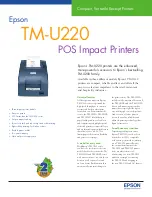
Manual Datafox ZK-MasterIV
Extensible authentication Protocol is a protocol for authenticating clients. It can access to the RADIUS
server for user administration. EAP is mainly used for large WLAN installations within WPA.
Encryption systems, that require, that both members know the keys before communicating (= symmetric
systems), are called Pre-Shared Key (PSK). An advantage of the PSK encryption is, that it can be
realized more easily between two known members than asymmetric encryption. The major disadvantage
of this system is, that the two members have to exchange the key in private before the communication
takes place. Therefore, the PSK system is not suitable for many applications in the internet (e.g. online
shopping), because there the prior exchange of a key is impossible or far too extensive. In such a case it
is easier to use the Public-Key system.
3.5.8.2.6 Passwords
(Loose translation of an excerpt from the German version Wikipedia, the free encyclopaedia)
Modern encryption system are technical advanced insofar as they often can only be decrypted via dictio-
nary attacks (except from trying all possible keys = Brute-Force method). At both attacks the weak point
is the password (key), set by the user. In order to create a password, that is not less insecure than the
actual encryption (112 to 128-bit-key for current systems), theoretically a sequence of about 20 random
characters is necessary. If no random characters are used, considerable longer passwords are necessary in
order to guarantee the same security level.
The length of passwords, that can be used for encryption, is often limited by the software (e.g. using
AES passwords with more than 32 characters do not increase the security). Therefore, you should always
use combinations of characters, that consist of rare words or word orders, fantasy or foreign-language
words, initial letters of a sentence, numeric and/ or special characters or even combinations thereof. Its
components should be unforeseeable for an attacker, who is well-informed about the person and his/her
interests. As alternative you can use a password generator and fix the password in you memory or you
note it on a secret place.
A relatively secure password could be: 0aJ/4%(hGs$df"Y! (16 characters). The major problem of such
sequences using random characters is, that they are difficult to be kept in mind and therefore have to be
noted somewhere. A simpler alternative is, to use a rehearsed sentence and to change some characters,
e.g. "‘dIE bANANNE*3 durch 1/4 nIKOTIN"’ (32 characters). It is very important to work in enough
random characters. Suitable is the use of the initial letters of a sentence, e.g. "‘LS-Wbt7m/Ia1000tftY"’,
created with the initial letters of the sentence "‘Little Snow-White beyond the 7 mountains/ Is a 1000
times fairer than You"’.
Although the use of special characters can increase the security, because the password becomes more
complicated, you should use them carefully, if there is the possibility, that the password has to be used in
foreign countries: It might be possible, that some special characters do not exist on foreign keyboards.
3.5.8.3 BIOS dialogue DatafoxStudioIV
In the BIOS dialogue of the Datafox Studio (< Communication => Device configuration BIOS >) you
can make the same settings as directly on the terminal (except the restriction at TCP/IP Set default and
Factory default WLAN, which is possible only at the terminal). You could compare the BIOS menu with
a remote maintenance tool, but changing the settings is accessible only via RS232.
The setting of WLAN parameters is going to be available from version 04.01.06.xx in the Datafox Studio.
Version: 04.01.07.00
Page
55
www.datafox.de
















































